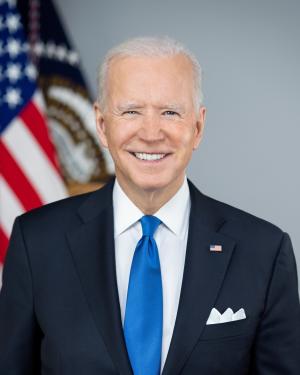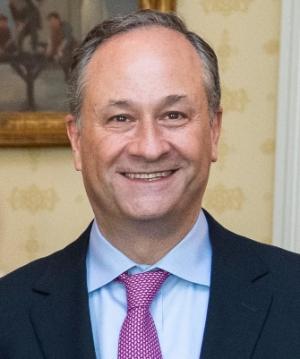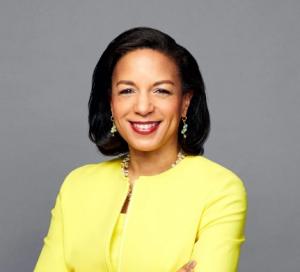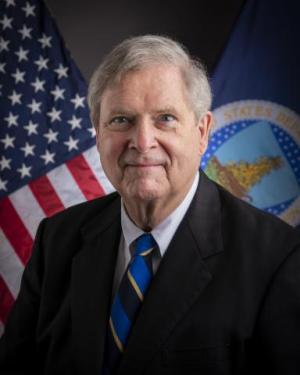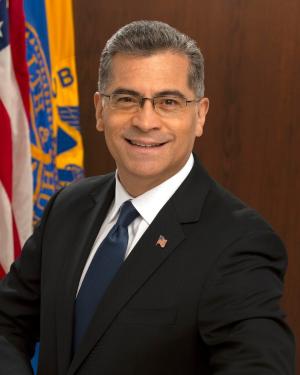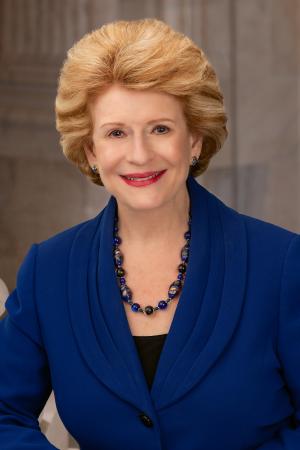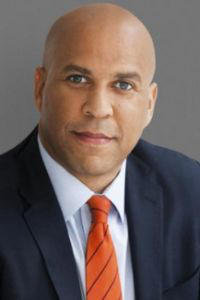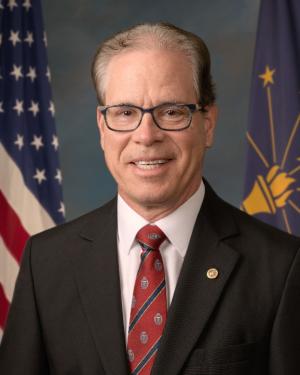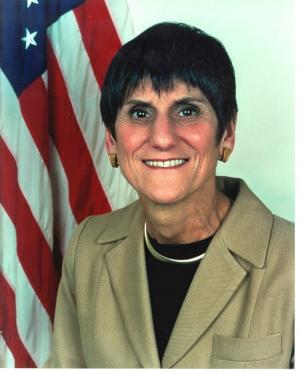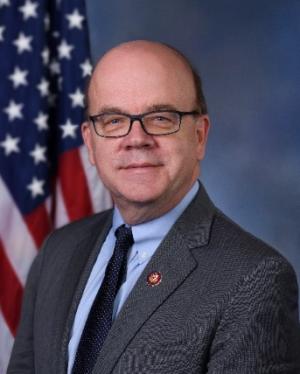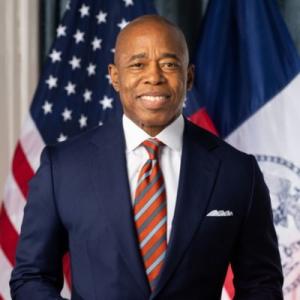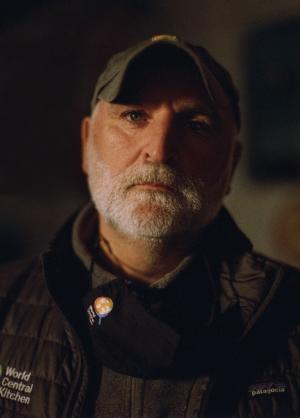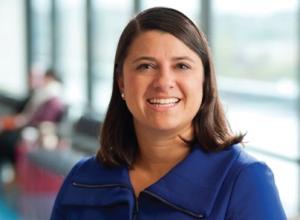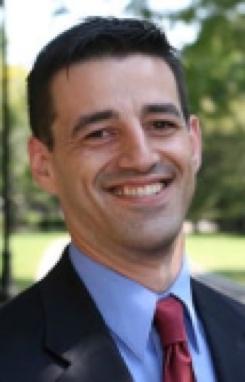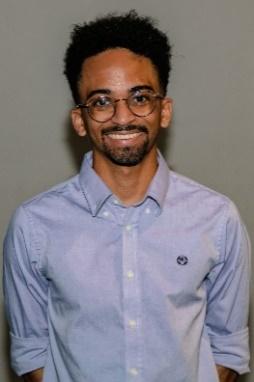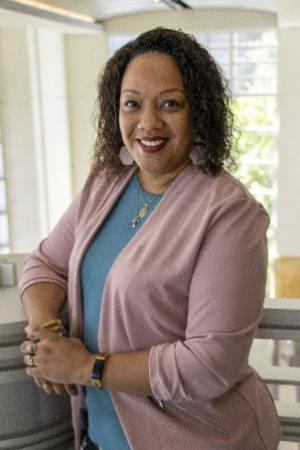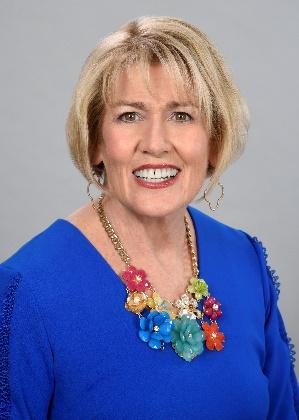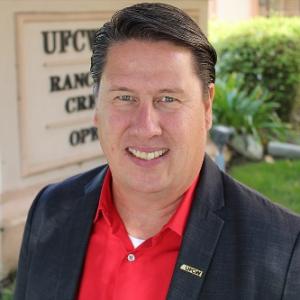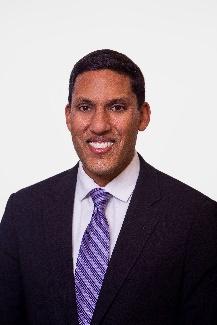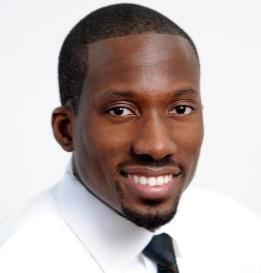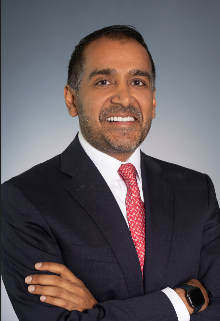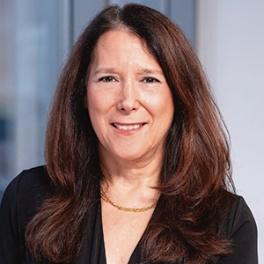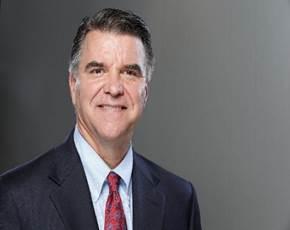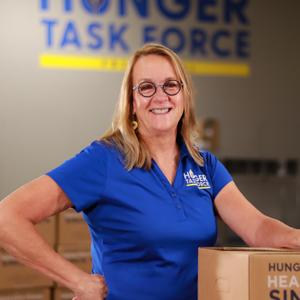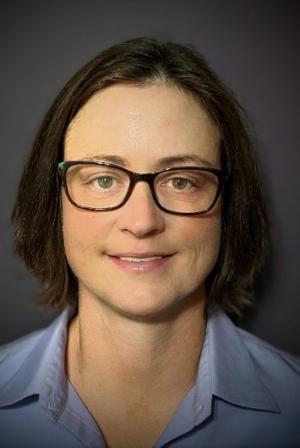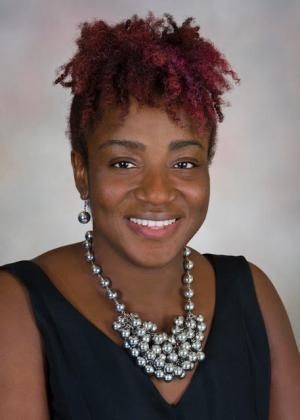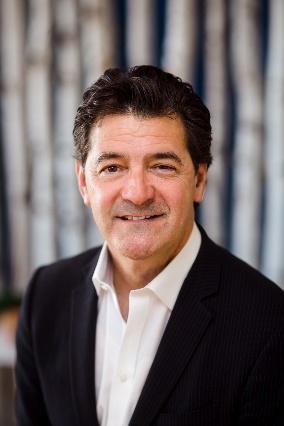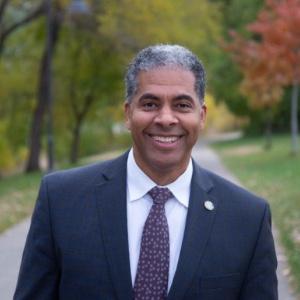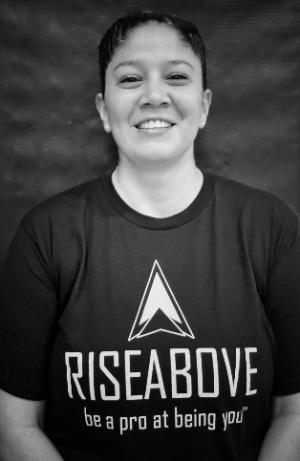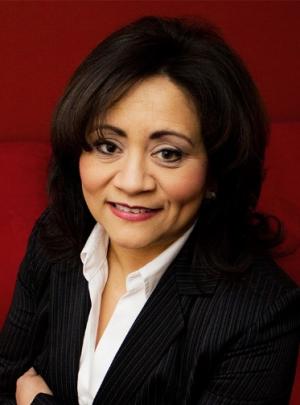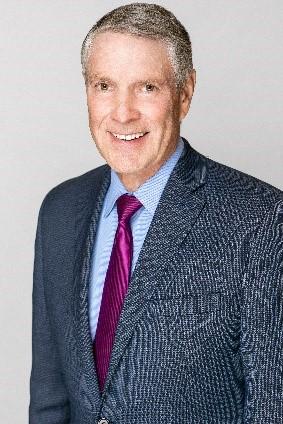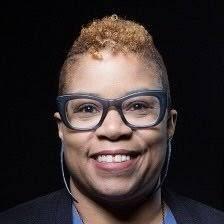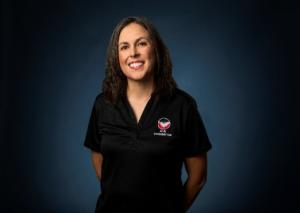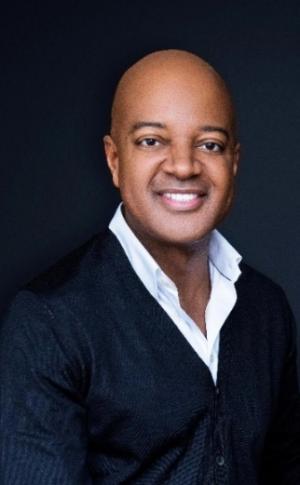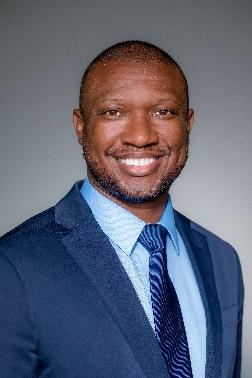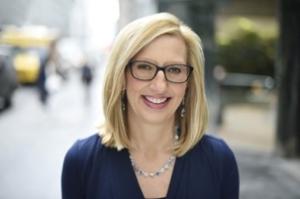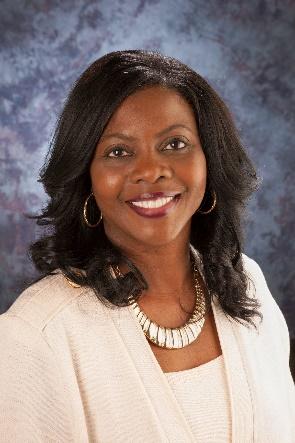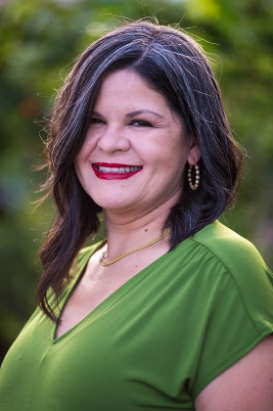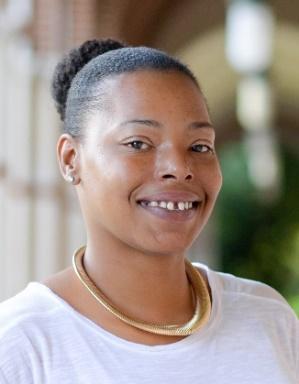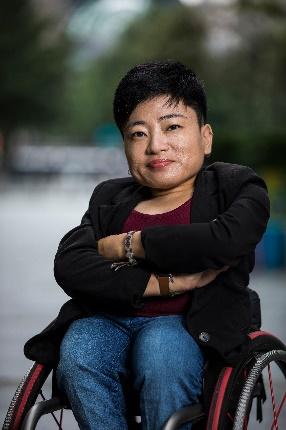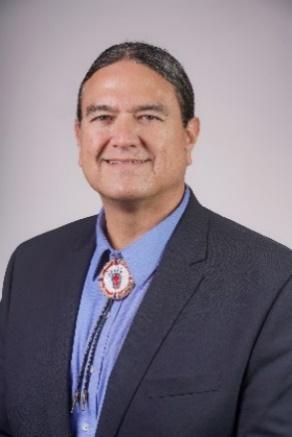The Biden-Harris Administration hosted the White House Conference on Hunger, Nutrition, and Health on September 28, 2022. The Conference catalyzed the public and private sectors around a coordinated strategy to accelerate progress and drive transformative change in the U.S. to end hunger, improve nutrition and physical activity, and close the disparities surrounding them.
Read the Conference Agenda [PDF – 248 KB].
Watch recorded Conference sessions.
White House Conference Pillars
The five pillars described below define the scope of the White House Conference on Hunger, Nutrition, and Health. They are meant to help identify actions that can be taken by all parts of society — including the federal government; local, state, territory, and Tribal governments; nonprofit and community groups; and private companies.
- Improve food access and affordability: End hunger by making it easier for everyone — including urban, suburban, rural, and Tribal communities — to access and afford food. For example, expand eligibility for and increase participation in food assistance programs and improve transportation to places where food is available.
- Integrate nutrition and health: Prioritize the role of nutrition and food security in overall health, including disease prevention and management, and ensure that our health care system addresses the nutrition needs of all people.
- Empower all consumers to make and have access to healthy choices: Foster environments that enable all people to easily make informed healthy choices, increase access to healthy food, encourage healthy workplace and school policies, and invest in public messaging and education campaigns that are culturally appropriate and resonate with specific communities.
- Support physical activity for all: Make it easier for people to be more physically active (in part by ensuring that everyone has access to safe places to be active), increase awareness of the benefits of physical activity, and conduct research on and measure physical activity.
- Enhance nutrition and food security research: Improve nutrition metrics, data collection, and research to inform nutrition and food security policy, particularly on issues of equity, access, and disparities.
Conference Speakers
Featured Speakers
President Joseph R. Biden, Jr.
Second Gentleman Douglas Emhoff
Douglas Emhoff is the Second Gentleman of the United States. In this role, Mr. Emhoff is working to share the priorities of the Biden-Harris Administration with people across the country and around the world. During his first year as Second Gentleman, Mr. Emhoff traveled to dozens of states and two countries. He has met with health care professionals, front-line workers, parents, teachers, caregivers, community leaders, legal aid providers, and small-business owners in urban and rural areas, communities of color, and Tribal communities to hear their stories and to share how the Administration is working to help their families.
Mr. Emhoff has made it a top priority to encourage people to protect themselves and their communities by getting vaccinated against COVID-19. He visited vaccine clinics in churches, community health centers, schools, stadiums, and even barbershops to raise awareness around the importance of getting vaccinated. As the first Second Gentleman, married to the first female vice president, Mr. Emhoff knows the power and importance of having women in leadership positions. While traveling the country, he has seen what it has meant to young girls and boys to look up to Vice President Kamala Harris. He is proud of the Biden-Harris Administration’s commitments to advancing gender equity and will continue to speak about the importance of being a supportive spouse. As a lawyer for over 30 years, Mr. Emhoff cares deeply about justice and equality in our legal system. He is a strong advocate for the Administration’s commitment expanding federal legal resources to those who need it most. Mr. Emhoff has convened legal aid listening sessions, visited pro bono clinics, and met with legal aid providers and their clients across the country to learn more about the inequities in the legal system and to hear how the pandemic has impacted access to justice.
Mr. Emhoff was born in Brooklyn, New York, and earned a B.A. from California State University, Northridge and a J.D. from University of Southern California Gould School of Law. In January 2020, Mr. Emhoff began teaching law courses at the Georgetown University Law Center and is enjoying the opportunity to mentor the next generation of lawyers.
Ambassador Susan E. Rice — White House Domestic Policy Advisor
Ambassador Susan E. Rice is the Domestic Policy Advisor in the Biden Administration. As Director of the Domestic Policy Council, she drives the formulation and implementation of President Biden’s domestic policy agenda, from economic mobility and racial equity to health care and immigration. She previously served as President Obama’s U.S. Permanent Representative to the United Nations and National Security Advisor from 2009-2017. She is the author of the New York Times best-selling memoir, Tough Love: My Story of the Things Worth Fighting For. Rice was most recently a Distinguished Visiting Research Fellow at American University’s School of International Service and a Non-Resident Senior Fellow at the Belfer Center for Science and International Affairs at Harvard University’s Kennedy School of Government. Prior to the start of the Biden Administration, she was a contributing opinion writer for The New York Times. Previously, Rice served as U.S. Assistant Secretary of State for African Affairs, Special Assistant to the President and Senior Director for African Affairs, and Director for International Organizations and Peacekeeping at the National Security Council under President Clinton from 1993-2001. Ambassador Rice received her master’s degree and Ph.D. in international relations from Oxford University, where she was a Rhodes Scholar, and her B.A. with honors in History from Stanford University. A native of Washington, DC, Ambassador Rice is married and has two children.
Secretary Tom Vilsack — U.S. Secretary of Agriculture
Thomas J. Vilsack was confirmed as the 32nd United States Secretary of Agriculture on Feb. 23, 2021 by the U.S. Senate. He was nominated by President Joe Biden to return to a role where he served for eight years under President Barack Obama.
Under Secretary Vilsack’s leadership, the U.S. Department of Agriculture is building back better by restoring the American economy, strengthening rural and historically underserved communities, responding to threats of climate change, creating good-paying jobs for American workers and the next generation of agricultural leaders, and investing in our kids and our families.
Secretary Vilsack is spearheading a transformation of the food system by creating more, better, and fairer markets and ensuring that the food system of today and the future is more resilient and more competitive globally. It will also offer consumers affordable, nutritious food grown closer to home.
From excessive drought to more extreme fires, our producers, farmers and ranchers are on the frontlines confronting the challenges associated with climate change. USDA is engaging the agriculture and forestry sectors in voluntary, incentive-based climate solutions to improve the resiliency of producers and to build wealth that stays in rural communities. Additionally, USDA is advancing investments in science and research to offer producers a toolbox to adapt to and mitigate climate change.
Secretary Vilsack continues to take bold, historic action to reduce barriers to access for historically underserved communities. By working to ensure all aspects of civil rights and equity are integrated, USDA is rooting out generations of systemic racism and building systems and programs inclusive of all USDA employees and customers.
Secretary Vilsack is also focused on ensuring Americans have consistent access to safe, healthy, and affordable food. USDA is investing in bold solutions that enhance food safety, improve the various far-reaching and powerful nutrition programs in the Department, and reduce food and nutrition insecurity in America.
Vilsack was the longest-serving member of President Obama’s original Cabinet. Prior to his appointment, he served two terms as the Governor of Iowa, served in the Iowa State Senate and as the mayor of Mt. Pleasant, Iowa. He received his bachelor's degree from Hamilton College and his law degree from Albany Law School in New York.
Prior to returning to USDA, he served as president and CEO of the U.S. Dairy Export Council (USDEC) from 2017 until February 2021. There, he provided strategic leadership and oversight of USDEC's global promotional and research activities, regulatory affairs and trade policy initiatives. In addition to his post at USDEC, he also served as a Strategic Advisor to Colorado State University’s food and water initiatives.
A native of Pittsburgh, Penn., Vilsack was born into an orphanage and adopted in 1951. After graduating from law school, Vilsack moved to Mt. Pleasant, Iowa, his wife Christie’s hometown, where he practiced law. The Vilsacks have two adult sons and two daughters-in-law—Doug, married to Janet; and Jess, married to Kate. They have five grandchildren.
Vilsack has been honored for his public service and work to advance American agriculture by several organizations, including the Congressional Hunger Center and the Global Child Nutrition Foundation. He is a former member of the board of directors for GenYOUth as well as Feeding America, a nationwide network of more than 200 food banks that feed more than 46 million people through food pantries, soup kitchens, shelters, and other community-based agencies.
Secretary Xavier Becerra — U.S. Secretary of Health and Human Services
Xavier Becerra is the 25th Secretary of the Department of Health and Human Services and the first Latino to hold the office in the history of the United States. As Secretary, he will carry out President Biden's vision to build a healthy America, and his work will focus on ensuring that all Americans have health security and access to healthcare.
Throughout his career, the Secretary has made it his priority to ensure that Americans have access to the affordable healthcare they need to survive and thrive - from his early days as a legal advocate representing individuals with mental illness, to his role as the Attorney General of the state of California.
Secretary Becerra served 12 terms in Congress as a member of the U.S. House of Representatives. During his tenure, he was the first Latino to serve as a member of the powerful Committee on Ways and Means, he served as Chairman of his party's caucus, and as the Ranking Member of the Ways and Means Subcommittee on Social Security and Ranking Member of the Subcommittee on Health.
For over two decades in Congress, Secretary Becerra worked so that every family had the assurance of care that his own family had when he was growing up. As a member of the Ways and Means Committee, Secretary Becerra introduced legislation -- the Medicare Savings Programs Improvement Act of 2007 -- that expanded cost-sharing subsidies for low-income seniors who receive both Medicare and Medicaid benefits by increasing the amount of resources they could receive. He championed provisions of the Medicare Improvements for Patients and Providers Act of 2008 that required physicians who perform imaging to be accredited and trained to ensure patient safety. And he was one of the original cosponsors of the Patient Protection and Affordable Care Act (ACA) which strengthened Medicare and lowered costs for seniors.
As Attorney General of the state of California, Secretary Becerra helped to promote competition by taking on a number of pharmaceutical companies that restricted competition through "pay-for-delay" schemes, held several companies accountable for legal violations for not protecting patients' health information, and took action early in the pandemic to keep Californians safe by using his authority to protect workers from exposure to COVID-19, secure key safeguards for frontline health care workers' rights, and take on fraudsters trying to take advantage of people during the pandemic. In addition, he cracked down on Medicare and Medicaid fraud, acted to combat the opioid crisis, including holding drug makers accountable, won an unprecedented $575 million antitrust settlement against one of the largest health systems in California, and he led the three-year federal court fight to save the ACA and with it, the protections of the 133 million Americans with preexisting conditions.
Born in Sacramento Secretary Becerra is the son of working-class parents. He was the first in his family to receive a four-year degree, earning his Bachelor of Arts in Economics from Stanford University. He earned his Juris Doctorate from Stanford Law School. His mother was born in Jalisco, Mexico and immigrated to the United States after marrying his father, a day laborer turned construction worker. He is married to Dr. Carolina Reyes, and he is proud of his three daughters: Clarisa, Olivia and Natalia, and son-in-law Ivan.
Chairwoman Debbie Stabenow — U.S. Senator, State of Michigan
U.S. Senator Debbie Stabenow is the Senior Senator from Michigan and Chairwoman of the Senate Committee on Agriculture, Nutrition, and Forestry.
Senator Stabenow is the leading voice in Congress to ensure children and families have access to the nutritious food they need to lead healthy lives. She has led this work as Chairwoman during the 2014 Farm Bill and Ranking Member for the most recent farm bill in 2018. Senator Stabenow also prioritized hunger and nutrition issues throughout the COVID pandemic, establishing important programs like Pandemic EBT, ensuring all children had access to school meals and increasing access to SNAP and WIC for families in need of assistance.
Senator Stabenow established the first nationwide nutrition incentive initiative in the 2014 Farm Bill, modeled after Michigan’s successful Double Up Bucks. The 2018 Farm Bill made the Gus Schumacher Nutrition Incentive Program permanent, adding produce prescriptions and creating the Nutrition Incentive Hub. Senator Stabenow will continue this leadership role in nutrition matters as Congress considers a new Farm Bill in the coming year.
Cory Booker — United States Senator, State of New Jersey
Cory Booker believes that the American dream isn’t real for anyone unless it’s within reach of everyone. Booker has dedicated his life to fighting for those who have been left out, left behind, or left without a voice.
Booker grew up in northern New Jersey and received his undergraduate degree from Stanford University. At Stanford, Booker played varsity football, volunteered for the campus peer counseling center, and wrote for the student newspaper. He was awarded a Rhodes Scholarship and went on to study at the University of Oxford, and then Yale Law School, where he graduated in 1997.
After graduating law school, Booker moved to Newark and started a nonprofit organization to provide legal services for low-income families, helping tenants take on slumlords. In 1998, Booker moved into the Brick Towers housing project in Newark, where he lived until its demolition in 2006. Booker still lives in Newark’s Central Ward today, where the median household income is less than $15,000.
At 29, Booker was elected to the Newark City Council, where he challenged the city’s entrenched political machine and fought to improve living conditions for city residents, increase public safety, and reduce crime.
Starting in 2006, Booker served as Newark’s mayor for more than seven years. During his tenure, the city entered its largest period of economic growth since the 1960s. In addition, overall crime declined and the quality of life for residents improved due to initiatives such as more affordable housing, new green spaces and parks, increased educational opportunities, and more efficient city services.
In October 2013, Booker won a special election to represent New Jersey in the United States Senate. In November 2014, Senator Booker was re-elected to a full six-year term.
As New Jersey’s junior Senator, Cory Booker has brought an innovative and consensus-building approach to tackling some of the most difficult problems facing New Jersey and our country. He has emerged as a national leader in the effort to fix our broken criminal justice system and end mass incarceration, helping craft the most sweeping set of criminal justice reforms in a generation, the First Step Act, which became law in December 2018. Booker has also worked to reform America’s broken food system, address our nation’s nutrition crisis, and end food insecurity.
Booker sits on the Judiciary Committee, the Foreign Relations Committee, the Committee on Agriculture, Nutrition, and Forestry, and the Small Business Committee.
Mike Braun — U.S. Senator, State of Indiana
Mike Braun is honored to represent the state of Indiana in the U.S. Senate. Mike is a conservative who is proud to work toward creating. great American jobs, building a strong national defense, reducing the debt and deficit, and helping our veterans.
In the Senate, he serves on the Aging Committee, Agriculture Committee, Budget Committee, Appropriations Committee, and the Health, Education, Labor and Pensions Committee (HELP).
Before Braun’s historic victory in 2018, he was the founder and CEO of Meyer Distributing, a company he built in his hometown of Jasper that employs hundreds of Americans across the country.
Mike graduated from Jasper High School in 1972, where he served as senior class president and lettered in football, basketball, and track. Mike went on to graduate from Wabash College where he earned an economics degree, graduated summa cum laude, and served as President of the Student Body. In 1976, Mike married his high school sweetheart Maureen and entered Harvard Business School, earning an M.B.A. in 1978.
After graduation, Mike took a different path than many of his classmates and moved back to Jasper to start his career. In 1979, he co-founded Crystal Farms, Inc. which later became one of the largest turkey operations in the Midwest.
After starting at Meyer Body Company in 1981 and eventually acquiring full ownership, Mike transitioned from the manufacturing sector to the distribution markets, forming Meyer Distributing. Since then, Meyer has grown to be among the industry leaders in auto parts distribution. Under Mike’s leadership, Meyer survived the 2008 financial collapse and came out a stronger company, averaging 22 percent growth since 2009.
Today, Meyer is a nationwide contender in the third-party logistics business. Throughout the massive expansion of his business, Mike has always remained grounded to his roots by anchoring the company in Jasper. Mike is proud of his decision to build his businesses in his hometown, and today three of his four children work in the family business.
Throughout the years, Mike has always looked for ways to give back to his community and serve his fellow Hoosiers, such as serving as a member of the local School Board and as a State Representative in 2014. Mike is an avid outdoorsman and enthusiastic mushroom hunter every spring.
As a State Representative, Mike has partnered with conservative leaders like Vice President Mike Pence to deliver results for Hoosiers. The 2016 Indiana General Assembly was ranked as the most conservative legislative body in the country.
Chairwoman Rosa DeLauro — U.S. Congresswoman, CT-03
Rosa DeLauro is the Congresswoman from Connecticut’s Third Congressional District, which stretches from the Long Island Sound and New Haven to the Naugatuck Valley and Waterbury. Rosa serves as the Chair of the House Appropriations Committee and the Labor, Health and Human Services, and Education Appropriations Subcommittee, where she oversees our nation’s investments in education, health, and employment.
As a Member of Congress, she is fighting to make sure Americans can get ahead and stay ahead for generations to come by enacting policies that lower the cost of living, drive down energy costs, cut the cost of healthcare premiums and prescription drugs, help families keep food on the table, and cut taxes for working families while ensuring the largest corporations pay taxes.
Rosa has made fighting for Connecticut’s working families her central mission. Even before the COVID-19 pandemic, people were struggling to keep up with skyrocketing costs for healthcare, housing, food, gas, and education. Families continue to live paycheck to paycheck because of inflationary pressure and stagnant wages while big corporations and billionaires use their money to rig the game. Rosa believes this amounts to a daily assault on every day working people.
Rosa believes that our priority must be to strengthen the economy and create good middle class jobs. She supports tax cuts for working- and middle-class families and led the fight to expand the Child Tax Credit in the American Rescue Plan to provide tax relief to millions of families in the form of monthly payments that helped many families keep food on the table and cover the rising costs of everyday life. The expanded and improved Child Tax Credit drove the largest decrease in the child poverty rate in history. Moreover, Columbia University’s Center for Poverty and Social Policy found these monthly payments strongly reduced food insufficiency, leading to a 25 percent decline in food insufficiency among low-income households. Rosa first introduced legislation to expand and improve the Child Tax Credit in 2003. As Chair of the Food Safety Caucus, and former Chair of the House Appropriations subcommittee responsible for the Food and Drug Administration (FDA), agriculture, and nutrition programs, Rosa has made ending hunger in the U.S. and bettering food safety across industries and the federal government a central mission. As Chair of the House Appropriations Committee, she fought for the expansion of the SNAP program and for an extension of free school meals for children throughout the pandemic. And, in response to the recent infant formula shortage, she introduced several bills to prevent a similar crisis in the future; restock the shelves with safe formula; and give the federal government the tools it needs to ensure foods that make it to market are safe.
Chairman James McGovern — U.S. Congressman, MA-02
U.S. Congressman James P. McGovern was first elected to Congress in 1996, and represents Massachusetts’ 2nd Congressional District, which includes his hometown of Worcester as well as much of Central and Western Massachusetts.
In 2019, House Speaker Nancy Pelosi named him the Chairman of the powerful House Rules Committee, which serves as the traffic cop of Congress, deciding which bills and amendments come to the floor for debate and how they will be considered.
Mayor Eric Adams — New York City
Like so many New Yorkers, Mayor Eric Adams grew up with adversity—and overcame it.
As one of six children, born in Brownsville and raised in South Jamaica by a single mom who cleaned houses, Eric and his family did not always know if they would come home to an eviction notice on the front door or food on the table. And when he was beaten by police in the basement of a precinct house at 15, Eric faced a life-changing act of injustice.
But instead of giving into anger, Eric turned his pain into purpose and decided to change the police department from within. He joined the NYPD and became one of its most outspoken officers, calling out racism and bias in the department and pushing for major reforms.
As a founder of 100 Blacks in Law Enforcement Who Care, Eric would often police the streets in a bulletproof vest one day during the high-crime 1980’s and 1990’s and protest bad behavior by cops the next, marching side-by-side with his fellow civil rights advocates. He rose to the rank of captain, helping to build the first computerized system for tracking crime in the city, which led to historic gains in public safety.
Eric’s efforts to change policing began his lifelong work to improve and protect New York. From the NYPD, he moved on to the State Senate, where he represented sections of central and Brownstone Brooklyn. In Albany, Eric built winning coalitions to advance New York City’s values and goals, helping to push through measures to protect tenants and workers, combat gun violence, end the NYPD’s abuses of stop and frisk, and advance human rights — including marriage equality. He also became the first person of color to chair the Senate’s Homeland Security Committee.
Eric was then elected Brooklyn Borough President in 2013 by putting together a diverse coalition of Brooklynites to become the borough’s first Black leader. As the representative of one of the nation’s largest counties, Eric fought tirelessly to grow the local economy, invest in schools, reduce inequality, improve public safety, and advocate for smart policies and better government that delivers for all New Yorkers.
When the COVID-19 pandemic struck the city, Eric moved a mattress into his office and worked around the clock to deliver donated meals and PPE to essential workers and vulnerable New Yorkers, demanding government produce more equitable relief.
In addition to continuing to fight for struggling New Yorkers and a better quality of life for all, Eric became a national leader on public health policy after learning he had developed Type 2 diabetes. Following his diagnosis, Eric completely changed his diet and his body, reversing the disease and launching a personal mission to educate New Yorkers about preventative care and wellness. His work has already led to successful proactive public health efforts across the city and increased education in schools and with high-risk populations in lower-income areas, partnering with civic organizations and health experts.
Eric is a lifelong New Yorker. He received his master’s degree in public administration from Marist College, and is a graduate of New York City Technical College and the John Jay College of Criminal Justice. He is also a proud product of New York City public schools, including Bayside High School in Queens. Today he lives in Bedford-Stuyvesant, where he has resided for over 20 years. Eric is the proud father of Jordan, an aspiring filmmaker and graduate of American University.
Chef José Andrés — Founder, World Central Kitchen
José Andrés is a cook. He was named one of Time Magazine’s “100 Most Influential People” in both 2012 and 2018, and awarded the 2015 National Humanities Medal from President Barack Obama. As the chef/owner of the award-winning ThinkFoodGroup restaurant collective, Andrés has been a pioneer of Spanish tapas in the United States and is also known for his groundbreaking avant-garde cuisine. As a naturalized citizen originally from Spain, Andrés has also been a tireless advocate for immigration reform. He co-chairs the Bipartisan Policy Center’s Food & Nutrition Security Task Force, and in 2022, President Joe Biden appointed Andrés to serve as co-chair of the President’s Council on Sports, Fitness, and Nutrition. In 2010, Andrés formed World Central Kitchen (WCK), a non-profit which uses the power of food to nourish communities and strengthen economies in times of crisis. His team served over 4 million meals to the people of Puerto Rico following Hurricane María. Since then, WCK has activated on six continents, serving hundreds of millions of fresh meals in the aftermath of both natural and manmade disasters. In response to the COVID-19 pandemic, the organization partnered with thousands of restaurants, farmers, and community leaders around the country to combat food and nutrition insecurity, laying the groundwork for smarter national food policy—one which builds longer tables in the U.S. and around the world. Currently, Andrés and World Central Kitchen oversee the world’s single largest humanitarian food response to the Russian invasion of Ukraine.
Plenary Speakers
Kari Miller-Ortiz — Director of People and Move United
Former US Army Sergeant Kari Miller-Ortiz currently serves as Director of People and Culture at Move United, leading the organization’s diversity, equity and inclusion (DEI) initiatives and programs. In this role, she oversees the organization’s DEI Leadership Committee, which includes leaders in the adaptive sports movement and meets regularly to assess how Move United can better serve persons with disabilities, particularly those of diverse backgrounds.
In 1999, Kari lost both of her legs when a drunk driver hit her car. She discovered sitting volleyball after playing other wheelchair-based sports. Through dedicated training and coaching, she made the US Paralympic Team. In 2007, she won a Silver Medal for her participation at the Paralympic Games’ Sitting Volleyball Invitational. In 2009, Miller was awarded Paralympian of the Year. She went on to win Silver Medals in the 2008 and 2012 Paralympic Games, and ultimately a Gold Medal at the 2016 Paralympic Games. During this time, Kari began working for the US Paralympic Military program and was responsible for setting up the program for newly injured service members at Walter Reed, Bethesda naval, and Ft. Belvoir facilities, with an emphasis on positive profile utilization – what the service member can do versus cannot do). Kari has also worked with multiple services to create adaptive programing and events, and ran community programs for the US Air Force Wounded Warrior Program. Kari has served as sitting volleyball coach for both Army and Air Force sitting volleyball teams.
Rebecca Onie — Co-Founder, The Health Initiative
Rebecca Onie is Co-Founder of The Health Initiative (THI), a campaign catalyzing a nationwide effort to spur a new conversation about – and increased investments in – health. Previously, Onie co-founded Health Leads, which enables physicians and other health care providers across the country to address the fundamental drivers of patients’ health, such as healthy food and safe housing. Health Leads armed thousands of health care institutions with the tools, technology, analytics, and best practices to address their patients’ resource needs, ultimately serving as a model for the Center for Medicare and Medicaid Innovation’s Accountable Health Communities pilot, the first federal pilot to screen and navigate patients to basic resources. Onie is a MacArthur “Genius” awardee, a member of the National Academy of Medicine, and an Aspen Institute Health Innovators Fellow. She has received the American Public Health Association’s Avedis Donabedian Quality Award; Network for Excellence in Health Innovation “Innovator in Health” Award; Robert Wood Johnson Young Leader Award; and Forbes’ Impact 30 Award for leading social entrepreneurs. She received her J.D. from Harvard Law School, where she was an editor of the Harvard Law Review.
Rocco Perla — Co-Founder, The Health Initiative
Rocco Perla is Co-Founder of The Health Initiative (THI), a campaign catalyzing a nationwide effort to spur a new conversation about – and increased investments in – health. Perla previously served as President of Health Leads, which enables physicians and other health care providers across the country to address the fundamental drivers of patients’ health, such as healthy food and safe housing. Prior to this, he was part of the leadership team that established the U.S. Department of Health and Human Services’ Center for Medicare and Medicaid Innovation, where he was responsible for developing the national learning system to test new ways to pay for and deliver care through the Affordable Care Act and oversaw the $1 billion Partnership for Patients and the Million Hearts Campaign. Perla was a Merck Fellow at the Institute for Healthcare Improvement and received the Impact Article of the Year Award from the National Association for Health Care Quality; the Federal Executive Board Award for Outstanding Creativity and Innovation; and the Deming Medal by the American Society for Quality. He is Assistant Professor at the UMass Chan Medical School with a joint appointment in the Department of Population and Quantitative Health Sciences and Family and Community Health. He received his Ed.D from University of Massachusetts Lowell.
Avani Rai — Healthy Living Advocate
Avani Rai (age 17) is a senior at Normal Community High School in Bloomington, IL and a young leader in addressing food insecurity. Avani has taken bold actions to reduce food insecurity and elevate healthy living through her activities with 4-H. Avani has been recognized for her service, leadership, and academic success as a National 4-H Youth in Action Finalist, Future Business Leaders of America's National Public Speaking Champion, and a National Merit Scholarship Program semi-finalist. She dreams of pursuing law and utilizing legislation to bring the topics of healthy living and food advocacy into the spotlight.
Joshua Williams — Founder, Joshua’s Heart Foundation
Joshua Williams (age 21) is a recent graduate of New York University and the founder of Joshua’s Heart Foundation, a non-profit organization dedicated to the fight against global hunger and poverty through the community service of young people. As a four-year-old, Joshua discovered that people right in his neighborhood went without food. This led the young Miami Beach resident, with the support of his family, to launch Joshua’s Heart Foundation, which provides items of basic necessity, such as food and other personal items to those in need, and also engages and educates community members about ways to fight hunger and poverty. Through his work, Williams has been able to engage and empower young people of all ages. He created a Junior Advisory Board to lead the foundation, develop programs to help fulfill its mission, and serve as role models for young people in their own communities and beyond.
Pillar Panelists — Session A
Panel 1A: Nourishing Brighter Futures: Ensuring affordable food for all children and families
Mike Curtin, Moderator
Mike is the CEO DC Central Kitchen (DCCK), the country’s first community kitchen. Under his leadership, DCC has expanded services to include contracts to provide scratched-cooked meals to 19 schools across DC; rapidly increased purchasing from local farms; established the Healthy Corners initiative to provide fresh and frozen produce to corner stores in areas without full service grocery stores; and opened two quick service social enterprise cafes that provide full-time job opportunities to graduates of the DCCK’s Culinary Job Training program. The Kitchen employs over 170 people, 60 percent of whom are graduates of this job training Program, which has provided life-changing instruction to more than 2,000 graduates.
Shavana Howard
Shavana is the Assistant Secretary of Family Support for the Louisiana Department of Children and Family Services (DCFS). She has more than 21 years of public service in both Washington and Louisiana and previously served for six years in the United States Navy. In Washington’s Department of Social and Health Services, she managed the state’s Supplemental Nutrition Assistance Program, determined eligibility for SNAP, TANF, and short-term disability programs, and helped to make Washington’s SNAP Employment & Training program a national model. She joined the Louisiana DCFS team in April 2020 and has put in place numerous innovative approaches, such as creating a virtual DSNAP; launching an On Demand interview process for SNAP and TANF benefits; and increasing the state’s TANF benefits for the first time in 20 years.
Donna Martin
Donna is director of the Burke County (GA) school nutrition program, which has 4,500 students in five schools, serving breakfast, lunch, after-school snacks, supper, and the summer feeding program. She is the former President of the Academy of Nutrition and Dietetics and was the first School Nutrition Director to be President of the Academy. In 2016, Donna’s work in the Burke County Public Schools nutrition program gained national attention when Michelle Obama and Al Roker visited Burke Middle School to help plant a school garden. Donna was awarded the 2016 Golden Radish Award for the state of Georgia because of her efforts in the Farm to School Movement.
Mark Ramos
Mark is President of United Food and Commercial Workers (UFCW) Local 1428 in Southern California. The union represents workers in supermarkets, drug stores, medical offices and other job sites. He began his career in 1987 as a courtesy clerk for Alpha Beta in Azusa, California. Subsequently, he was promoted to grocery clerk and night crew manager. In 2001 Local 1428 asked him to join its full-time staff. He became president of the Local in 2014. Local 1428, under his leadership, runs a food pantry out of its headquarters. It also organizes food giveaways at Thanksgiving and other holidays in partnership with Labor Community Services and others.
Shannon Razsadin
Shannon is President and Executive Director of the Military Family Advisory Network (MFAN). She is a nationally recognized leader, spokesperson, and champion for service members, veterans, and their families. An active duty Navy spouse, the cornerstone of her career has been engaging with educational institutions, Fortune 500 companies, and government leadership to enact change that benefits military families. In 2021, MFAN's research found that one in five military and veteran families was food insecure. In response, MFAN partnered with organizations across the country to provide more than one million meals to military households in need. Shannon spearheaded the creation of the Combat Military Hunger Task Force, which brings together food industry leaders to identify efficient and scalable methods of delivering food directly to military families.
Panel 2A: Food is Medicine: Bringing nutrition out of the health care shadows
Rajiv J. Shah, MD, Moderator
Dr. Shah is president of the Rockefeller Foundation, a global institution committed to promoting the well-being of humanity around the world through data, science and innovation. Under his leadership, the foundation raised and deployed more than $1 billion to respond to the COVID pandemic at home and abroad, launched a Pandemic Prevention Institute to prevent future health crises, and created a $10 billion Global Energy Alliance for People and Planet to help secure a just and green recovery. Raj serves on President Biden’s Defense Policy Board and is a member of the American Academy of Arts and Sciences and the Council on Foreign Relations. Previously, Raj was the 16th Administrator of the U.S. Agency for International Development where he reshaped the $20 billion agency’s global operations and secured bipartisan support for America’s leading development and humanitarian role in the world.
Kofi D. Essel, MD, MPH, FAAP
Dr. Kofi Essel is a board-certified community pediatrician at Children’s National Hospital (CNH) in Washington, D.C. He serves as Assistant Professor of Pediatrics, the Director of the George Washington University (GWU) School of Medicine and Health Sciences Culinary Medicine Program, the Director of the GWU Community/Urban Health Scholarly Concentration, and the Director of the GWU Clinical Public Health Summit on Obesity. Dr. Essel has dedicated his career to advocacy/research around healthcare training, health disparities, and community engagement, with expertise and national recognition in the areas of addressing obesity stigma, and food insecurity in families.
Sachin Jain, MD, MBA
Dr. Sachin Jain is President and CEO of SCAN Group and SCAN Health Plan, one of the nation’s largest not-for-profit Medicare Advantage plans, serving more than 270,000 members across California, Nevada and Arizona. Previously, Dr. Jain was President and CEO of CareMore and Aspire Health. He has also worked in the Obama Administration as Senior Advisor at the Centers for Medicare & Medicaid Services.
Karen Pearl
Karen Pearl has served as President & CEO of God’s Love We Deliver for 16 years. God’s Love provides the food and nutrition services so urgently required by those living with severe and chronic illnesses such as HIV, cancer, Alzheimer’s disease, heart disease, end-stage renal disease, and advanced diabetes.
Panel 3A: Look Locally: Growing partnerships to expand local food options
Charles F. (Chuck) Conner, Moderator
Charles became president & CEO of the National Council of Farmer Cooperatives (NCFC) on January 22, 2009. As president of NCFC, Conner oversees the organization’s work to promote and protect the business and public policy interests of America’s farmer-owned cooperatives. Prior to joining NCFC, Conner served as the Deputy Secretary at the U.S. Department of Agriculture. Conner interacted directly with President George W. Bush and his senior staff to formulate domestic and international food, trade, security, and energy policy. Connor played a key role in developing the Administration’s immigration policy, including important changes to the H2A program. Conner was Special Assistant to the President, Executive Office of the President, from October 2001 to May 2005, working on the 2001/02 Farm Bill to develop the strategy behind the transfer of several USDA agency functions to the newly formed Department of Homeland Security. Conner is a graduate of Purdue University, with a Bachelor’s of Science degree and is the recipient of Purdue’s Distinguished Alumni Award.
Phoebe Wong
Phoebe is a ‘22 alum of FoodCorps, a national nonprofit that partners with schools and communities to nourish kids’ health, education, and sense of belonging. Following high school graduation, Phoebe felt pulled to service and found an opportunity with FoodCorps during a gap year. In East Hartford, CT, Phoebe brought nutrition and garden education to life for students with hands-on lessons. Phoebe’s interest in food education and nourishing meals in school stemmed from her experiences with the foster care system, where she faced personal struggles with eating disorders and access to food. The understanding she developed along her own journey helped her establish deep connections with her students as they explored food to fuel their bodies, minds, and spirits while building community and genuine friendships. Phoebe is now a freshman at the College of the Holy Cross in Massachusetts, where she is pursuing a Bachelor’s degree in International Studies with a concentration in East Asian Studies, and works as a photographer for her college’s Division 1 sports teams. While she has had her sights set on attending law school since childhood, her service experience has inspired her to begin thinking about career paths.
Sherrie Tusler
Tussler has led Hunger Task Force as Executive Director for over 25 years. She is a social justice champion, innovator, and advocate for the hungry. Throughout her career, Tussler has worked tirelessly to advocate for strong federal nutrition programs, collaborating with state and federal government to create progressive and modernized models around SNAP, Summer Meals, School Meals, WIC, and Senior Nutrition Programs. She has secured federal commodity contracts and long-standing private resources to operate the nation’s only MyPlate food bank, a 208-acre urban farm and a grocery store on wheels—ensuring a steady supply of healthy and culturally appropriate foods at local emergency food organizations in Milwaukee and throughout Wisconsin. During the pandemic, Tussler led statewide efforts to organize and expand the Hunger Relief Federation of Wisconsin, launched the nationally recognized Dairy Recovery Program, secured large-scale federal contracts to feed low-income families, people of color, and Tribal Nations across Wisconsin, and created the Badger Box, a local food purchasing food program that supplies only Wisconsin-sourced foods in support of farmers, food producers and Wisconsin agriculture.
Tara Roberts-Turner
Tara is a founding member of Wisconsin Food Hub Cooperative (WFHC). She currently serves as General Manager for WFHC and previously as the WFHC President of the Board of Directors. WFHC is a farmer owned cooperative that provides sales, marketing, logistics, aggregation, food safety, and other services to its farmer members. WFHC has helped to transform many small family farms into wholesale ready suppliers in a region formerly known primarily for cannery growing. WFHC participates in developing several projects, including the Tribal Elder Box and Wisconsin Early Childhood Development project. Tara has worked in project management, education, and business. Tara also co-manages Turners Fresh Market with her family. Tara has a Master’s from Tufts University in Public Policy and a BS in Physiology from Boston University. Tara currently resides in Central Wisconsin with her spouse and three children.
Charlene McGee, MPA
Charlene serves as the Racial and Ethnic Approaches to Community Health (REACH) Program Manager for Multnomah County Health Department in Portland, Oregon. In this capacity, she leads program performance by working collaboratively with multi-sectoral partners to develop, modify, implement and evaluate interventions in the primary areas of nutrition, community clinical linkage, communications, economic development and the built environment. A self-proclaimed Liberian-Oregonian, Charlene’s experiences as an immigrant and survivor of Liberia's civil wars has heavily influenced her career trajectory. Her career spans more than 20 years, working at the nexus of global and public health policy and program planning to elevate lived experiences rooted in community wisdom. An advocate for systems and policy improvements to advance evidence-based policies, and culturally appropriate interventions to promote health, Charlene holds a BS in Health Promotion and Education with a minor in Community Health from Oregon State University. With an Executive Masters in Public Administration from Portland State University, Charlene has served on boards and presented at local, regional and national conferences. Ms. McGee enjoys spending time with her family, celebrating culture, and building community.
Panel 4A: Fit for Life: Creating communities designed for activity
Tom Farrey, Moderator
Tom is founder and executive director of the Aspen Institute’s Sports & Society Program, the mission of which is convene leaders, facilitate dialogue, and inspire solutions that can help sports serve the public interest. The program’s signature initiative is Project Play, which leverages the power of play to build healthy children and communities through sports. Tom came to Aspen from ESPN where his investigative reporting over two decades won many awards, including Emmys and a 2014 Alfred I. duPont/Columbia University Award — ESPN’s first.
Al Bangoura
Al is the Superintendent of the Minneapolis Park and Recreation Board. The Minneapolis park system has an operating budget of $140 million, encompasses 180 parks, and attracts almost 30 million visits annually. Under Bangoura’s visionary leadership, Minneapolis Parks earned #1 Trust for Public Land (2020) and was a Gold Medal Finalist (2021). Bangoura’s commitment to breaking down barriers to access, use, and park experiences is rooted in his childhood in Milwaukee, where parks were a safe space and where he was able to thrive with experiences in the arts, nature, and sports.
Jaci McCormack
Jaci grew up on the Nez Perce Reservation outside of Lewiston, Idaho. She fell in love with basketball early on and earned a scholarship to play for Illinois State University. After college, Jaci was inspired to return home and give back to her community. She served as the Deputy Executive Director for the Nez Perce Tribe, as well as the Youth Prevention Director. In 2015, Jaci founded Rise Above, a non-profit organization that gives Native American youth the skills and resilience to overcome their circumstances and write their own futures. Rise Above is also in the process of building several youth centers where tribal and prevention leaders can serve communities throughout Indian country, and the organization can have a home base for their programs.
CiCi Rojas
Cici is chair of Y-USA’s National Board of Directors. She previously chaired the board’s International, Diversity, and Inclusion Committee and is a strong ally for the Y’s work of ensuring ethnic and racial equity for all. Ms. Rojas also is Past Chairperson of the YMCA of Greater Kansas City and Treasurer of World YMCA. Ms. Rojas is an accomplished C-suite executive turned entrepreneur. In 2017, she transferred her development skills and extensive network to co-lead Tico Productions and Tico Sports LLD, a company established by her and her husband. The enterprise is a full-service, multimedia production and bilingual marketing company that developed a Spanish-language broadcast and community engagement platform for professional sports teams, including the Kansas City Chiefs.
Panel 5A: Evidence to Action: Using research to guide policy and scale pilots
Senator William H. Frist, MD., Moderator
Senator Frist is a nationally recognized heart and lung transplant surgeon, former U.S. Senate Majority Leader, and incoming chairman of the global board of The Nature Conservancy. As a leading authority on health and health care, Senator Frist speaks nationally on health reform, government policy, global health, education reform and the intersection of heath and the environment. Senator Frist has written extensively on the intersection of food, nutrition, and health. In 2018, he served as co-chair of the Bipartisan Policy Center SNAP Task Force that authored a report leveraging federal nutrition programs for better health. He is also a founding member of Nourish Science, a Co-Chair of the Task Force Informing the White House Conference on Hunger, Nutrition, and Health (an independent group of leaders and experts convened by the Chicago Council on Global Affairs, Food Systems for the Future, the Friedman School of Nutrition Science and Policy at Tufts University, and World Central Kitchen), and Co-Chair of the Aspen Institute’s Aspen Health Strategy Group.
Swati Chandra
Swati Chandra is the director of the Los Angeles County Food Equity Roundtable. Swati has over two decades of experience in both the private and public sectors. She has held senior executive-level positions in high-growth firms, innovative media corporations, technology firms, and start-ups. Before joining the Food Equity Roundtable, Swati spearheaded the launch of several far-reaching initiatives with the Los Angeles County Department of Workforce Development, Aging, and Community Services (WDACS) as a FUSE Executive Advisor. She was instrumental in designing and launching Great Plates Delivered Nutrition Program in Los Angeles County. The program was launched at the peak of the COVID-19 crisis and delivered meals to older adults while supporting the local restaurant economy.
Angela Odoms-Young, PhD
Dr. Odoms-Young is the Nancy Schlegel Meinig Associate Professor of Maternal and Child Nutrition, Director of the Food and Nutrition Education in Communities Program (FNEC), and New York State Expanded Food and Nutrition Education Program (EFNEP), Division of Nutritional Sciences, at Cornell University. Her research explores social and structural determinants of dietary behaviors and diet-related diseases in low-income and Black/Latinx populations, and centers on identifying culturally appropriate programs and policies that promote health equity, food justice, and community resilience. Dr. Odoms-Young has over 20 years of experience partnering with communities to improve nutrition and health and 200+ academic publications, book chapters, and presentations.
Ross Wilson
Ross is the Executive Director of the Shah Family Foundation, a foundation in Boston focused on education, health care, and community. The Shah Foundation has created innovative models to feed children, including Local Lunchbox. Prior to this position, he spent almost two decades serving the Boston Public Schools in a variety of roles including Deputy Superintendent, Chief of Staff, Assistant Superintendent for Human Capital, Principal, kindergarten teacher, literacy specialist, and teacher of students with disabilities.
Pillar Panelists — Session B
Panel 1B: Public-Private Partnerships: Collaborating to increase affordable food options in underserved communities
Erin Fitzgerald, Moderator
Erin Fitzgerald serves as the CEO of U.S. Farmers & Ranchers in Action (USFRA), a 501(c)(3) organization that represents over 1.6 million farmers and ranchers and works with leaders in the food value chain on a shared vision of co-creating sustainable food systems and a belief that bold action is needed. USFRA drives a broad range of projects that advance meaningful action and results in the co-creation of solutions for sustainable food production, climate change, and economic sustainability. USFRA is serving as the secretariat for a Decade of Ag, a shared vision for the food and agriculture sector, now endorsed by 150 leaders. Fitzgerald is also recognized as a White House Champion of Change for Sustainable and Climate-Smart Agriculture and an Aspen Institute First Movers Fellow.
Mary Blackford
Mary Blackford is the Founder of Market 7, a community marketplace that features Black-owned businesses for the purpose of alleviating food and retail deserts in Washington, DC. Market 7 is currently building the first Black-owned food hall in Washington, DC. In 2019, Mary worked with Whole Foods Market (Mid-Atlantic) to bring new Black-owned brands to their stores in DC. Mary has also developed training partnerships with Google and the Greater Washington Urban League to provide entrepreneurial training in underserved communities. She began her career in the socially responsible finance industry and then became one of the founding chapter leaders of the DC Chapter of Women Investing for a Sustainable Economy, a women-led professional group committed to providing resources to women working within the impact investing industry.
Diana Tellefson Torres
Diana Tellefson Torres is the founding executive director of the UFW Foundation, an organization that mobilizes farmworkers across the U.S. to advocate for more equitable policies, from immigration reform, to worker protections — like heat standards, overtime pay, and pesticide protections. The UFW Foundation is the nonprofit arm of the United Farm Workers of America, the nation’s largest labor union for farmworkers. The UFW Foundation provides critical services for farmworkers — including assistance with wage claims, workplace discrimination, voter registration, tax preparation, and immigration — and engages thousands of Latinos, farm workers, and immigrants in community outreach and organizing. During the COVID-19 pandemic, the UFW Foundation played an essential role supporting hundreds of thousands of farmworkers by distributing food, masks, and financial assistance; helping secure $700 million in federal pandemic relief; and leading the fight for farmworker vaccination prioritization.
Kamau Witherspoon
Kamau Witherspoon is CEO of Shipt. Previously, he was SVP of Operations at Target, leading planning and analysis, M&A integration, and process improvement initiatives across Supply Chain, Stores and Properties. He was also SVP Operational Performance and Readiness at UnitedHealthcare, Chief Restaurant Excellence Officer for the KFC US division of Yum! Brands, and held several roles at Target. Earlier in his career, Kamau served 10 years as a Surface Warfare Officer in the United States Navy. Achieving the rank of Lieutenant Commander, Kamau led divisions in Operations and Logistics on USS John C. Stennis (CVN-74), in Engineering on USS Ashland (LSD-48) and led a Pentagon sponsored global data collection and analysis program. Kamau also served in a NATO Allied Maritime Command Reserve unit in Northwood, UK.
Mindy Woods
Mindy is a Desert Storm Navy Veteran and single mother. She uses her and her son’s lived experiences of homelessness, poverty, and other challenges to lift-up her community. Mindy serves on multiple boards and commissions within the state of Washington, as well as on the national level, and works as the Human Services Program Manager for the City of Edmonds, a position she advocated to create. She is a founding member of the Resident Action Project; a statewide, resident-led network of people who’ve experienced housing insecurity and injustice who organize and use civic engagement, education, and storytelling to affect policy change. She is a tireless housing and social justice organizer and believes that everyone should have access to an affordable, safe, and healthy place to live in thriving communities.
Panel 3B: Making Healthy Choices Easy: Why improving food environments matters
Lazarus Lynch, Moderator
Lynch is an African-American chef, entrepreneur, musician, model, actor, and the author of the prominent text, Son of a Southern Chef: Cook with Soul (2019, Avery). Lynch received his B.S. from Buffalo State College in Individualized Studies. He is a two-time Chopped champion and the host of Snapchat's first-ever cooking show, Chopped U, and the Food Network digital series Comfort Nation. His website was a 2017 Saveur Blog Awards nominee. In 2014, Lazarus worked at the USDA under the leadership of Secretary Tom Vilsack, working with key stakeholders in health, food, and nutrition. He was the first Black queer chef to attend and cook for the Met Gala in 2021. His writings and culinary wisdom are featured in Vogue, The New York Times, The Washington Post, and The Today Show. Lazarus is a proud 4-H Luminary, World Food Prize alum, and an ongoing brand partner with Meta, Inc.
Kaster Dee Garrett-Adimora
Dee is a Senior Store Manager and a Social Equity Franchise candidate at Everytable. Everytable is a public benefit corporation with a mission to make nutritious food affordable and accessible for everyone, everywhere. The company opens stores in historically underserved communities, serving fresh and healthy meals priced affordably based on the median income of the neighborhood. Dee joined Everytable in 2018 after over 30 years of experience in the fast food industry. She managed several high-volume locations within a major fast food chain and saw firsthand the physically challenging work and low pay of the fast food industry. Despite the challenges, Dee always felt a sense of ownership with any restaurant she managed, and has continued that spirit now at a mission-driven company, Everytable. Dee has experienced first hand how having access to fresh, nutritious, affordable meals has an impact on her and her customers. Dee began at Everytable as the Store Manager of the Compton location, which is located in a low-income food desert area. Due to Dee’s commitment, leadership and involvement in the community, she has succeeded in turning the Compton location into one of Everytable’s most successful stores. This experience led Dee to sign up for Everytable University and the Social Equity Franchise program, which provides training, mentorship and capital to entrepreneurs to own their own Everytable business. Dee is excited to learn and grow along this journey, and her long-term vision is to create economic mobility and wealth for herself, her family, and her community.
Shane Grant
Shane is the CEO of Danone North America, a leading food, beverage and nutrition company in the US and Canada. In this role, Shane leads a passionate team of over 6,000 colleagues across North America with a mission to bring health through food to as many people as possible. As one of the world’s largest Certified B Corps, Danone has long-term direct relationships with hundreds of American farmers, and is proud to partner with critical stakeholders to bring the Danone mission to life. Danone has market-leading positions in yogurt, plant-based food and beverage, premium dairy, water, coffee, and specialized nutrition. Key brands include Oikos, Two Good, Dannon, Activia, Light & Fit, Silk, So Delicious, Horizon Organic, International Delight, Stok, Evian, Happy Family Organics, Nutricia, and others. Danone North America is one of the largest geographic units of the Danone Group globally.
Susan Mayne, PhD
Dr. Mayne is the Director of the Center for Food Safety and Applied Nutrition (CFSAN) at FDA. Dr. Mayne leads the Center’s development and implementation of programs and policies related to the safety and labeling of foods covering approximately 80% of the U.S. food supply. CFSAN’s responsibilities also include fostering the development of healthier foods and ensuring that consumers have access to accurate and useful information to make healthy food choices. Prior to joining the FDA in 2015, she spent nearly three decades at Yale University, where she held an endowed chair as Professor of Epidemiology. Dr. Mayne has conducted extensive research on food, nutrition, and health.
Panel 4B: The Power of Play: Supporting physical activity for kids
Lysa Ratliff, Moderator
Lysa Ratliff is the CEO of KABOOM!, the national nonprofit that works to end playspace inequity for good.
Lysa leads KABOOM! at a pivotal moment in this country where the needs of children have never been more urgent, and is working to address the inequities that impact their physical and mental well-being through equitable access to playspaces. She is passionate about centering racial equity and working across sectors in innovative and bold new ways to find solutions with communities to ensure healthy childhoods are possible for generations of kids.
Throughout her career with 25 years of experience in nonprofit leadership and development, Ratliff has always served as a champion for kids, leading efforts to connect diverse partners and make change for communities and kids across the country, and around the world. She was the Vice President of Partnership Development at KABOOM! prior to being named CEO in 2021, has held senior leadership roles at Habitat for Humanity International and Save the Children, and spent more than a decade in international marketing communications at several large corporations. Lysa has also led both public and private fundraising teams, cause marketing, and communications campaigns with large global corporations.
Drawing from her own special childhood experiences on the playground, she knows the power of community and play. When not spending time with her husband and two daughters, Lysa enjoys all things home and the outdoors, with most of her playtime being spent in the garden growing organic fruits and vegetables.
Catherine Grano
Catherine Grano is a registered nurse with over 22 years of experience in maternal-child, school, and public health nursing. Cathy received her Ph.D. in Nursing from Seton Hall University, and holds certifications for inpatient obstetric nursing, childbirth education, and school nursing. She is a proud 2013 Johnson & Johnson School Health Leadership Fellow. She serves as a NJ State Data Coordinator for the National Association of School Nurses Every Student Counts program, co-chair of the New Jersey States School Nurses Association’s Education Committee, and vice president of the Monmouth County School Nurses Association. She is a member of Sigma Theta Tau International, the Eastern Nursing Research Society, and the American Public Health Association.
Jermaine Harris
Jermaine is a 19-year veteran of the Chicago Police Department. He currently serves as a Community Policing Sergeant where he develops community-based strategies involving law enforcement and nonprofit partners. Jermaine is a Chicago native who was born on the city’s West Side, where he still resides, and is a United States Marine Corps veteran. Jermaine served on Chicago Mayor Lori Lightfoot’s transition team for Public Safety and Accountability, and is an advisor to the Council on Police Reforms and Race with the National Police Foundation. He is a University of Chicago Civic Leadership Academy alumnus, a Leadership Greater Chicago Signature Fellow, a USA Justice Eisenhower Fellow, and a member of the Executive’s Club of Chicago. Jermaine co-founded Chicago Westside Police & Youth Sports Conference, a sports-based youth development program that serves 1,000 youth annually, and Community Leadership Fellows, a grassroots leadership development program for emerging leaders.
Ann Marie Krautheim, M.A., R.D., L.D.
Ann Marie is the CEO of GENYOUth, where she leads the non-profit organization’s strategic vision, partnerships and programs to create healthier school communities, empower youth to lead change and support the critical needs of youth to be well-nourished and physically active. She was instrumental in the development and expansion of GENYOUth’s flagship program, Fuel Up to Play 60, the largest in-school nutrition and physical activity program. She also leads key GENYOUth initiatives to end student hunger and keep kids physically active with programs including NFL FLAG-In-Schools and Root4Her. As a registered dietitian, she serves on the boards of state and regional dietetic associations, and her honors include the prestigious Anita Owen Award for Innovation in Nutrition Education from the Academy of Nutrition and Dietetics.
Panel 5B: Advancing Equitable Research: Developing innovative and inclusive policy solutions
Chavonda Jacobs-Young, PhD, Moderator
Chavonda serves as the Under Secretary for Research, Education, and Economics (REE) at the U.S. Department of Agriculture (USDA) and as USDA’s Chief Scientist. REE, which has more than 8,500 employees and a $4 billion budget, advances agricultural research, innovation, data, and Extension across a full range of agricultural issues, including climate-smart agriculture, nutrition security, equity, and strengthening food supply chains. Previously, Dr. Jacobs-Young was the ARS Administrator for 8 years. She also served in several other key leadership positions at USDA over the past 20 years. She holds M.S. and Ph.D. degrees in Wood and Paper Science and a B.S. degree in Pulp and Paper Science and Technology from North Carolina State University.
Dr. Maribel Campos Rivera
Maribel is a triple board-certified pediatrician with a subspecialty in neonatal and perinatal medicine and diplomate in obesity medicine, a professor at the University of Puerto Rico Medical Sciences Campus, and founder and director of the Center for Community Outreach for Health Across the Lifespan. Her recent work focuses on the effects of perinatal and early childhood exposures on health across the lifespan, including community action projects fostering a culture of health through system alignment, science education, and mindfulness. Her team collaborates with community-based and professional organizations to identify and implement evidence-based solutions to address health disparities.
Jimmieka Mills
Jimmieka is the Co-Founder of Equitable Spaces. Its mission is to create opportunities for community members with lived and living experiences of poverty and related issues, those who have been historically excluded from policy decision-making processes, to incorporate their knowledge, perspectives, and expertise into the design of the policies and programs that directly impact their lives. Previously, Jimmieka served as a strategic consultant for organizations like Lumina Foundation, the Center for Law and Social Policy (CLASP), and the Center for Health Care Strategies (CHCS). Raised in Oakland, California, Jimmieka experienced first-hand the effects of poverty, and as a researcher, writer and activist, Jimmieka focuses on creating inclusive spaces for individuals with the lived and living experiences of poverty. Jimmieka serves as a frequent peer reviewer of research focused on issues faced by impoverished communities.
Mia Ives-Rublee
Mia is the director of the Disability Justice Initiative at the Center for American Progress, a nonpartisan nonprofit think tank. She received her master's in social work at UNC Chapel Hill and has been working to advocate for the disability community her entire career. Mia was awarded the UNC School of Social Work Distinguished Alumni Award and was one of Glamour Magazine's Women of the Year in 2017. She was also recognized by She the People as one of 20 Women of Color in Politics to Watch in 2020.
Donald Warne, MD, MPH (Oglala Lakota)
Dr. Warne serves as the Co-Director of the Center for Indigenous Health and as a tenured, Full-Professor at the Bloomberg School of Public Health at Johns Hopkins University. There, he also serves as the Provost Fellow for Indigenous Health Policy. Donald is also the Senior Policy Advisor to the Great Plains Tribal Leader’s Health Board in Rapid City, SD; a member of the Oglala Lakota tribe from Pine Ridge, SD; and comes from a long line of traditional healers and medicine men. His work experience includes: several years as a primary care physician with the Gila River Health Care Corporation in Arizona; Staff Clinician with the National Institutes of Health; Indian Legal Program Faculty with the Sandra Day O’Connor College of Law at Arizona State University; Health Policy Research Director for Inter-Tribal Council of Arizona; Executive Director of the Great Plains Tribal Chairmen’s Health Board; and Chair of the Department of Public Health at North Dakota State University.
